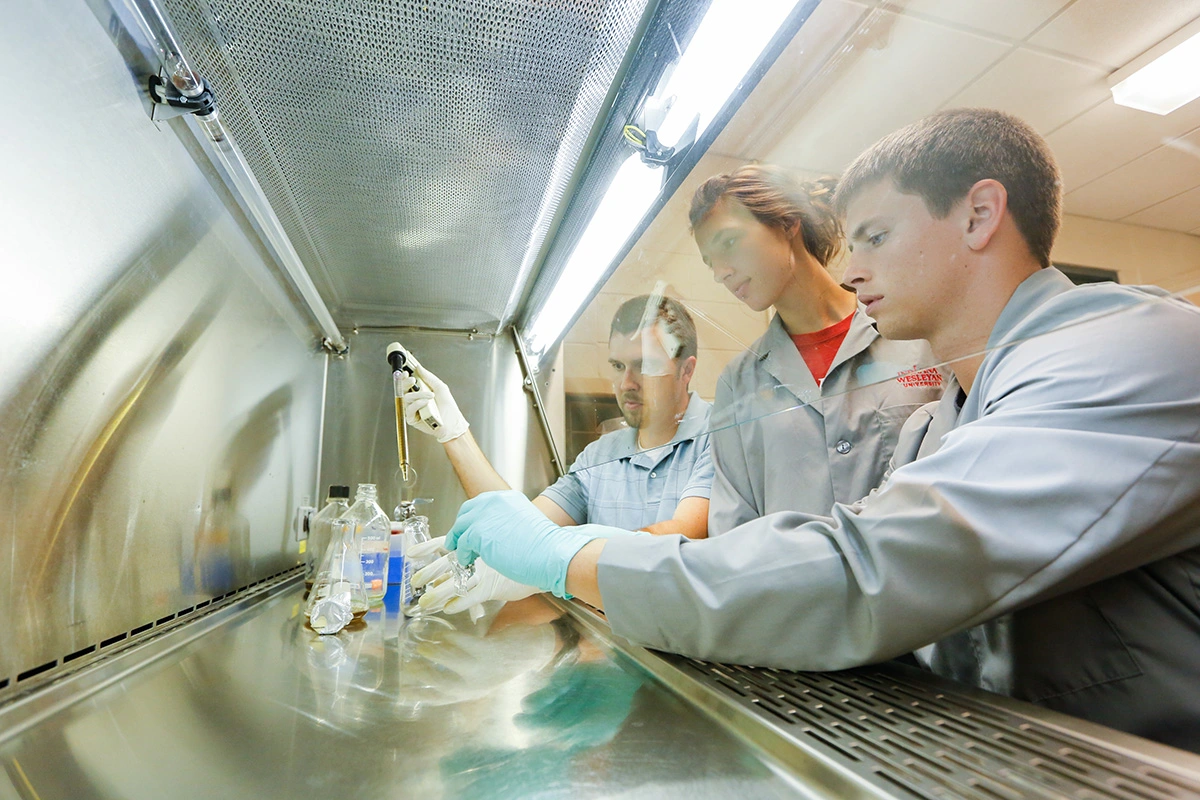
IWU-Marion's Wildcat Academy dual enrollment program allows juniors and seniors in high school to earn college credit before high school graduation. These credits satisfy IWU requirements and can be transferred to other universities.
In high school, you can earn college credit through IWU's dual enrollment program, saving you time and money in your path toward a college degree!
Eligible high school juniors may take one onsite, three-credit-hour course per term beginning in the fall semester and each summer session between the junior and senior years.
Eligible high school seniors may take up to two onsite courses per term, not to exceed a total of six credit hours per term.
Total credits earned through the program may not exceed 16 credit hours.

Each student taking courses will need to submit an application fee ($25) with the application, then pay tuition ($50/credit hour) upon acceptance. Tuition must be paid before a student can be enrolled in a course.
*Some courses may have an associated fee, which is the responsibility of the applicant.
Eligibility
Admission Requirements
Eligibility
Admission Requirements
| Date | ||
|---|---|---|
| Applications Open | March 15 - August 14, 2026 | |
| Enrollment Open | March 30 - August 21, 2026 | |
| Deadline to Drop Class | September 16, 2026 | |
| Deadline to Withdraw from Class | November 13, 2026 | |
Each student taking courses will need to submit an application fee ($25) with the application, then pay tuition ($50/credit hour) upon acceptance.
Tuition must be paid before a student can be enrolled in a course.
Students who are admitted for dual enrollment will receive an email sharing the steps to take in order to officially request a dual enrollment course. (Note: Students must re-apply for each term.)
Students desiring to continue in the Wildcat Academy program, must earn a grade of "C" or higher for each course completed.
If a student enrolls for a new term, prior to grades being entered for the previous term and the required grade was not achieved, then the student will be dropped from the course(s) for the next term.
| Withdrawal Week | Refund Amount | |
|---|---|---|
| 1 | 100% | |
| 2 | 100% | |
| 3 | 75% | |
| 4 | 50% | |
| 5 | 25% | |
| 6+ | No Refunds | |
If for some reason a student is unable to complete a course, it is very important they cancel their registration. Students who do not cancel their registration may receive an “F” grade on their permanent record for failure to attend and complete assignments.
Drop a Course: Courses may be “dropped” by emailing Registration & Academic Services (RAS) at RAS@indwes.edu using the IWU student e-mail account before the second Friday after the start of the class.
Withdraw from a Course: Wildcat Academy students can "withdraw" from a course up until the tenth week by emailing RAS at RAS@indwes.edu .
Log in to the IWU Portal using your IWU student credentials.
Your username and password will be provided to you via email after you are enrolled in a course.
You will also be assigned an IWU student-email. This is the email your professor will use to contact you throughout the course. You should begin checking this email once you are enrolled in a course.
Student ID cards can be picked up 8am – 5pm, Monday – Friday in the Student Development Office on the second floor of the Barnes Student Center (above Wildcat Express).
You will need to know your ID number at this time. Your ID number will be provided to you upon enrollment in a course.
Textbook information can be found at the IWU Bookstore.
Some courses will utilize online resources.
If you have any questions regarding textbooks, contact the IWU Bookstore at 888-392-2930.
As a dual enrollment student, you must have a parking pass. A new parking pass is required for each academic year.
You will park in the yellow lines on campus, designated for commuter students. Campus police will provide you with a map when you pick up your parking pass.
At the conclusion of the semester, your grade for your course will be sent to the high school representative identified on your Grade Release Form at the time of application for the term of the course.
If you would like to order an official transcript you may do so through the Registrar’s Office.
Please note, this list includes all 100-level courses with IWU's traditional undergraduate campus. Some courses may be reserved for full-time degree seeking students. These courses may include music ensembles, FYE courses, and courses reserved for full-time degree seeking students within a major at IWU. As a dual enrollment student, should you choose a course that is reserved for a degree-seeking student, the IWU dual enrollment coordinator will reach out to you directly to work with you in choosing an alternate course. If you have any questions, please contact the dual enrollment coordinator at wildcatacademy@indwes.edu.
Starting this Fall, IWU will offer online dual enrollment options for high school students. Tentative courses are listed below and requirements may vary.
If you'd like to explore this new, online option in the Fall of 2026, please contact the dual enrollment coordinator at wildcatacademy@indwes.edu.